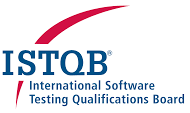Unveiling the 7 Benefits of Security Testing in Software Development Life Cycle (SDLC)
Unveiling the 7 Benefits of Security Testing in Software Development Life Cycle (SDLC)
In the ever-evolving landscape of technology, ensuring the security of software products is paramount. With cyber threats becoming increasingly sophisticated, integrating robust security measures into the Software Development Life Cycle (SDLC) is no longer an option but a necessity. One of the most effective ways to fortify software against vulnerabilities is through comprehensive security testing. This article delves into the seven invaluable benefits of incorporating security testing throughout the SDLC.
1. Early Detection of Vulnerabilities
Security testing allows developers to identify and rectify vulnerabilities at an early stage of the SDLC. By conducting thorough assessments during the initial phases of development, potential security loopholes can be addressed before they escalate into significant issues. This proactive approach saves time, resources, and prevents potential security breaches down the line.
2. Cost-Effectiveness
Integrating security testing into the SDLC proves to be cost-effective in the long run. Detecting and resolving security flaws during the development phase is far more economical than dealing with the repercussions of a data breach or cyber-attack post-deployment. Investing in security testing upfront mitigates the financial risks associated with potential security breaches, including legal fees, regulatory fines, and damage to reputation.
3. Enhanced User Trust and Confidence
Security breaches not only jeopardize sensitive data but also erode user trust and confidence in the software product. By prioritizing security testing, developers can reassure users that their personal information is safeguarded against malicious activities. This fosters trust and enhances the reputation of the software, leading to increased user adoption and loyalty.
4. Compliance with Regulatory Standards
In today’s regulatory environment, adherence to security standards and regulations is non-negotiable. Security testing helps ensure that software products comply with industry-specific regulations such as GDPR, HIPAA, or PCI-DSS. By demonstrating compliance with these standards, organizations can avoid hefty penalties and legal consequences while instilling trust in customers regarding data privacy and protection.
5. Reduction in Security Risks
By systematically identifying and addressing security vulnerabilities, security testing significantly reduces the risk of potential security breaches. This proactive approach minimizes the likelihood of unauthorized access, data theft, or system compromise, thereby safeguarding the integrity and confidentiality of sensitive information.
6. Competitive Advantage
In today’s highly competitive market, prioritizing security can provide a significant competitive advantage. Customers are increasingly discerning about the security features of the software products they use. By emphasizing robust security measures through comprehensive testing, organizations can differentiate themselves from competitors, attract discerning customers, and gain a competitive edge in the marketplace.
7. Improved Overall Quality
Security testing not only enhances the security posture of software but also contributes to its overall quality. By identifying and addressing security vulnerabilities, developers inadvertently improve the reliability, performance, and usability of the software. This results in a superior end product that meets user expectations and withstands the rigors of real-world usage.
In conclusion, integrating security testing into the Software Development Life Cycle (SDLC) offers a multitude of benefits, ranging from early detection of vulnerabilities to improved overall quality. By prioritizing security testing in software development life cycle organizations can mitigate risks, enhance user trust, ensure regulatory compliance, and gain a competitive advantage in the market. In today’s digital age, where cyber threats loom large, investing in security testing is not just a prudent decision but a strategic imperative.











